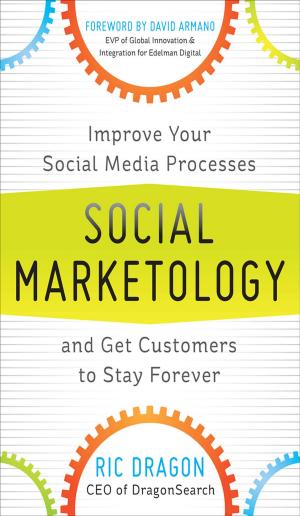| Author: | Alex Mather | ISBN: | 9782930583266 |
| Publisher: | White & MacLean Publishing | Publication: | February 16, 2012 |
| Imprint: | Smashwords Edition | Language: | English |
| Author: | Alex Mather |
| ISBN: | 9782930583266 |
| Publisher: | White & MacLean Publishing |
| Publication: | February 16, 2012 |
| Imprint: | Smashwords Edition |
| Language: | English |
Remember those photographs you took doing something you’d rather forget with someone you can’t remember in a location you can’t recall? You discarded the originals, of course. And what about that exchange of e-mails that got out of hand and which you now deeply regret. You deleted them of course, so it’s all in the past.
Or is it?
If you posted the pictures to a social network like Facebook or e-mailed from an address like Gmail or Hotmail, then all your photographs are still in cyberspace, eternally circulating, awaiting recall at an embarrassingly inappropriate moment. And those e-mails? Well, don’t forget that Gmail and Hotmail have the right to read anything and everything you post on their services, keep it forever and use it as they see fit to ‘provide their service’. As things stand at the moment, you have no right to be forgotten and no right to have your foolish indiscretions forgotten either – even if you delete your accounts. If anyone shared your stuff, reposted or quoted it in an email then it remains out there.
In this groundbreaking paper, Alex Mather explores how this all came about and proposes that the law should be changed to allow ‘the right to delete’ our entire digital footprint and to be forgotten. There are, of course, those who disagree with Mather’s position, claiming that the public has a right to know, especially if you are public figure, but they singularly fail to justify why the public has a right to know about the average person for ever.
With half the world using the internet for research and communication, and something like1 in 7 people in the world using Facebook, this debate is only just beginning. But already, lives have been destroyed, reputations ruined, and permanent damage done. Whether you are an experienced cybernaut, a concerned adult, or a young person in perpetual contact with your cloud of cyberfriends, this paper is a ‘must read’.
Remember those photographs you took doing something you’d rather forget with someone you can’t remember in a location you can’t recall? You discarded the originals, of course. And what about that exchange of e-mails that got out of hand and which you now deeply regret. You deleted them of course, so it’s all in the past.
Or is it?
If you posted the pictures to a social network like Facebook or e-mailed from an address like Gmail or Hotmail, then all your photographs are still in cyberspace, eternally circulating, awaiting recall at an embarrassingly inappropriate moment. And those e-mails? Well, don’t forget that Gmail and Hotmail have the right to read anything and everything you post on their services, keep it forever and use it as they see fit to ‘provide their service’. As things stand at the moment, you have no right to be forgotten and no right to have your foolish indiscretions forgotten either – even if you delete your accounts. If anyone shared your stuff, reposted or quoted it in an email then it remains out there.
In this groundbreaking paper, Alex Mather explores how this all came about and proposes that the law should be changed to allow ‘the right to delete’ our entire digital footprint and to be forgotten. There are, of course, those who disagree with Mather’s position, claiming that the public has a right to know, especially if you are public figure, but they singularly fail to justify why the public has a right to know about the average person for ever.
With half the world using the internet for research and communication, and something like1 in 7 people in the world using Facebook, this debate is only just beginning. But already, lives have been destroyed, reputations ruined, and permanent damage done. Whether you are an experienced cybernaut, a concerned adult, or a young person in perpetual contact with your cloud of cyberfriends, this paper is a ‘must read’.















